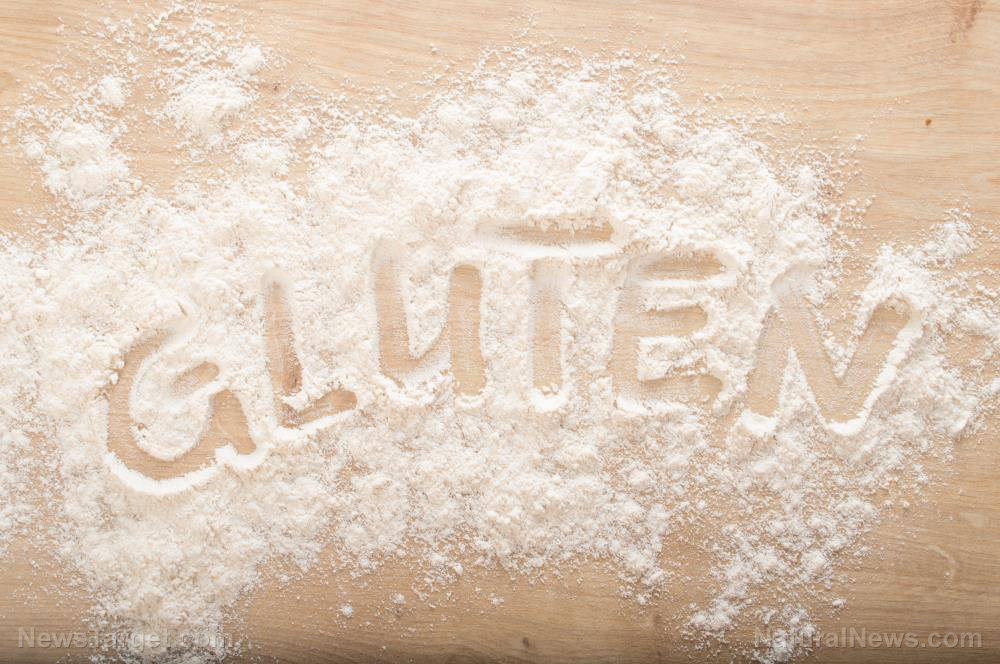Cutting gluten from your diet significantly improves symptoms of Parkinson’s disease
09/04/2019 / By Stephanie Diaz

Italian researchers revealed in a recent article published in the Journal of Neurology the case of a 75-year-old man with Parkinson’s disease whose symptoms dramatically recovered after following a three-month gluten-free diet.
The researchers reported that while celiac disease is often associated with gastrointestinal complaints, it also has neurological symptoms. Aside from causing gut and intestinal problems, wheat intolerance is also said to affect the brain and may cause schizophrenia, mania, and autism.
There are multiple reasons why gluten is associated with neurotoxicity.
- Gluten has drug-like compounds. Gluten contains pharmacologically active opioid peptides, gluten exorphins, and gliadorphin, which induces behaviors associated with addiction.
- Gluten affects immune function. Many studies have shown that consumption of wheat may negatively affect the gut-brain axis, intestinal permeability, and autoimmune response of sensitive populations.
- Gluten interferes with neurological function. Research has found that the wheat germ agglutinin (WGA) — also known as “wheat lectin” — can cross the blood-brain barrier. In effect, it can affect multiple neurological functions.
- Gluten can diminish cognitive function. Wheat does not provide the proper kind and amount of nutrients that the brain needs. Previous studies have linked the overconsumption of gluten to cognitive decline in older populations in the West. (Related: Gluten attacks the brain and damages the nervous system.)
With these factors in mind, it comes as no surprise that eliminating gluten from the diet could lead to a reduced risk of developing neurodegenerative diseases, such as Parkinson’s disease.

Gluten-free diet found to improve symptoms of Parkinson’s disease
In this case study, the man had been experiencing symptoms of Parkinson’s disease for over a year. These symptoms included difficulty walking, instability, and increased fatigue. Upon closer look of his neurological examination, his test results revealed that he also has hypomimia (reduced facial expressions), bradykinesia (decreased movement speed), rigidity, and postural instability.
Additional tests, including a brain scan, laboratory blood work, and a duodenal biopsy, were performed to verify whether he had Parkinson’s disease. Results showed that he had low dopamine production, normal levels of serum folate and vitamin B12, elevated homocysteine and IgA, as well as a flattened intestinal villus. His tests also revealed the presence of anti-gliadin antibodies and anti-transglutaminase antibodies. All of these results confirmed that the older man had celiac disease. To manage its symptoms, he was asked to change his diet to a gluten-free one.
After a three-month follow-up, the patient reported an almost complete remission of symptoms, which was later confirmed during a neurological evaluation.
The researchers, however, observed that there was little improvement in the patient’s dopamine production. This led them to conclude that celiac disease aggravated the symptoms of Parkinson’s disease.
This finding increases the possibility that people with Parkinson’s disease may also be suffering from unidentified and unreported gluten-associated Parkinsonism. To avoid such a risk, these patients would do well in eliminating gluten from their diet.
Gluten-free alternatives
Before jumping in on the bandwagon of a gluten-free diet, it’s important to know what gluten is. Gluten is a protein found in many types of cereal. It is responsible for a dough’s sticky consistency and the fluffy and chewy texture of a bread.
The first step in eliminating gluten from your diet is by avoiding any food that has wheat, barley, rye, triticale, malt, and brewer’s yeast. This can be replaced with grains like quinoa, tapioca, sorghum, corn, millet, arrowroot, and teff. Starches and flour made from potatoes, corn, chickpeas, soy, almond, coconut, and tapioca are also safe alternatives.
Detox.news has more information about the gluten-free diet.
Sources include:
Submit a correction >>
Tagged Under:
brain health, celiac disease, cognitive health, dementia, disease treatments, gluten, gluten free, gluten-free diet, mental health, neurodegenerative disease, Parkinson's Disease, prevention, research, wheat intolerance
This article may contain statements that reflect the opinion of the author





















